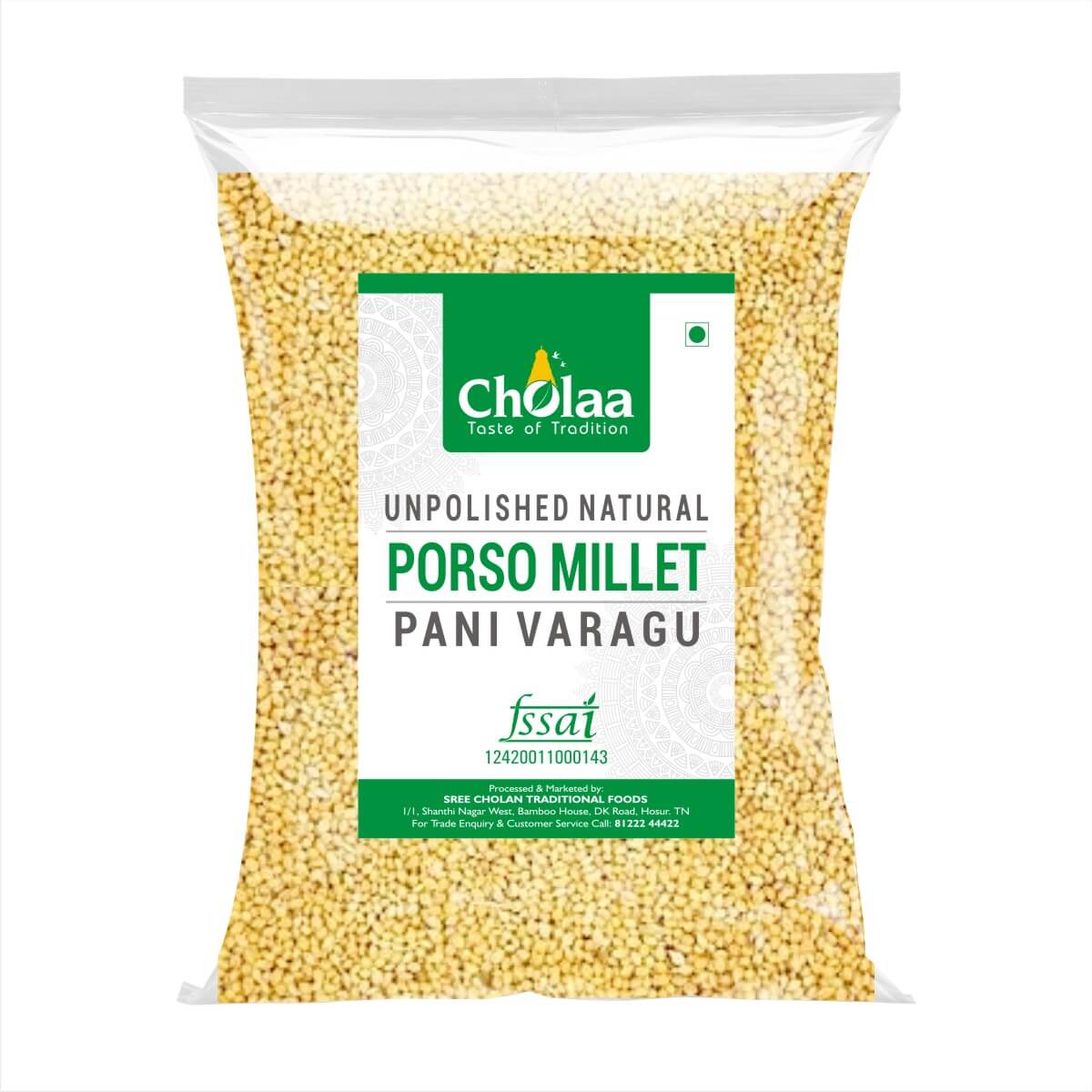Proso millet (Panicum miliaceum L.) is a quick growing, drought resistant crop that had been utilised as human food from ancient times. Presently this millet is mainly cultivated in countries like India, China, Russia, United States, Pakistan, Afghanistan, some middle east and European countries.
With recent advancements in agriculture, Proso millet a staple food for many of us is now mostly replaced by cereals like Rice and Wheat. However, it still holds great importance as a food source in certain parts of the world.
Nutrition
The tiny Proso millet seeds are packed with important nutrients and provides about 350 calories per 100 grams. The protein content of these millets (11.6%) is similar to that of wheat. However, the grains are significantly high in essential amino acids leucine, isoleucine and methionine making them a high-quality protein source (1).
They are a rich source of vitamins like Thiamine, riboflavin, niacin, pyridoxine and Vitamin E along with minerals like phosphorus, manganese, iron and potassium.
The mineral content in proso millets is similar or slightly higher to that of other cereals. These millets are also rich in soluble fibre and its fibre content in dehulled grains can be compared with that of oats. It also contains several bioactive compounds like polyphenols that have great nutritional importance (2).3
Health benefits of Proso Millet
In addition to being a food crop, proso millets offer significant health benefits. Its nutritional constituents make it a healthy diet for diabetes and obesity. It is also considered to have beneficial effects on heart and liver health.
A Healthy Type 2 Diabetes Diet
Several studies had shown low levels of adiponectin production is linked to type 2 diabetes. Good food and moderate physical activity are very important in managing type 2 diabetes. Food sources like proso millets may benefit you in such a case.
In one experiment, it was revealed that Korean proso millet protein concentrate was able to elevate the plasma levels of Adiponectin and HDL- cholesterol in obese type 2 diabetic mice and was also able to bring down glucose and insulin levels significantly (3).
It may protect Liver Health
Proso millet contains dietary proteins that can have a natural ability to protect the liver. Research conducted also suggest that proso millet protein can be considered as a preventive food for liver injury.
Diet with 20% proso millet protein was fed for 14 days to the rats subjected to D-galactosamine liver injury. The protein diet showed a protective nature by suppressing several enzymes elevated due to D-galactosamine activity when compared with the rats fed with 20% casein diet (4).
It can regulate Cholesterol metabolism
Consuming healthy and nutritious food is very important in controlling cholesterol levels in your body.
Research has shown that dietary proso millet protein is linked to elevate the HDL cholesterol levels in the plasma. Considering the activity of HDL against the formation of fat deposits in arteries, proso millets can be useful as a food that can regulate cholesterol metabolism in the body (5).
Anticancer Activity
Diet plays a very important role in cancer both positively and negatively. A healthy diet with good amounts of fruits, vegetables, fibre and less processed meats, fried foods and soda may help to reduce the risk of cancer.
Proso millets are a fibre and nutrients rich food that can help to fight against cancer. Research conducted had shown that proso millet extracts had exhibited anti-proliferative properties against MDA human breast cells and human hepG2 liver cancer cells when tested in-vitro (6).
It may control Obesity
Out of several factors that were known to cause obesity, food habits play a major role. Including diet with Whole grains such as proso millets can be beneficial in weight management and other health conditions.
When 1% Proso millet extract supplemented diet was fed to obese mice in an experiment, the extract was able to decrease the body weight and total cholesterol levels in the treated mice when compared with obese mice fed with normal diet (7).










Reviews
There are no reviews yet.